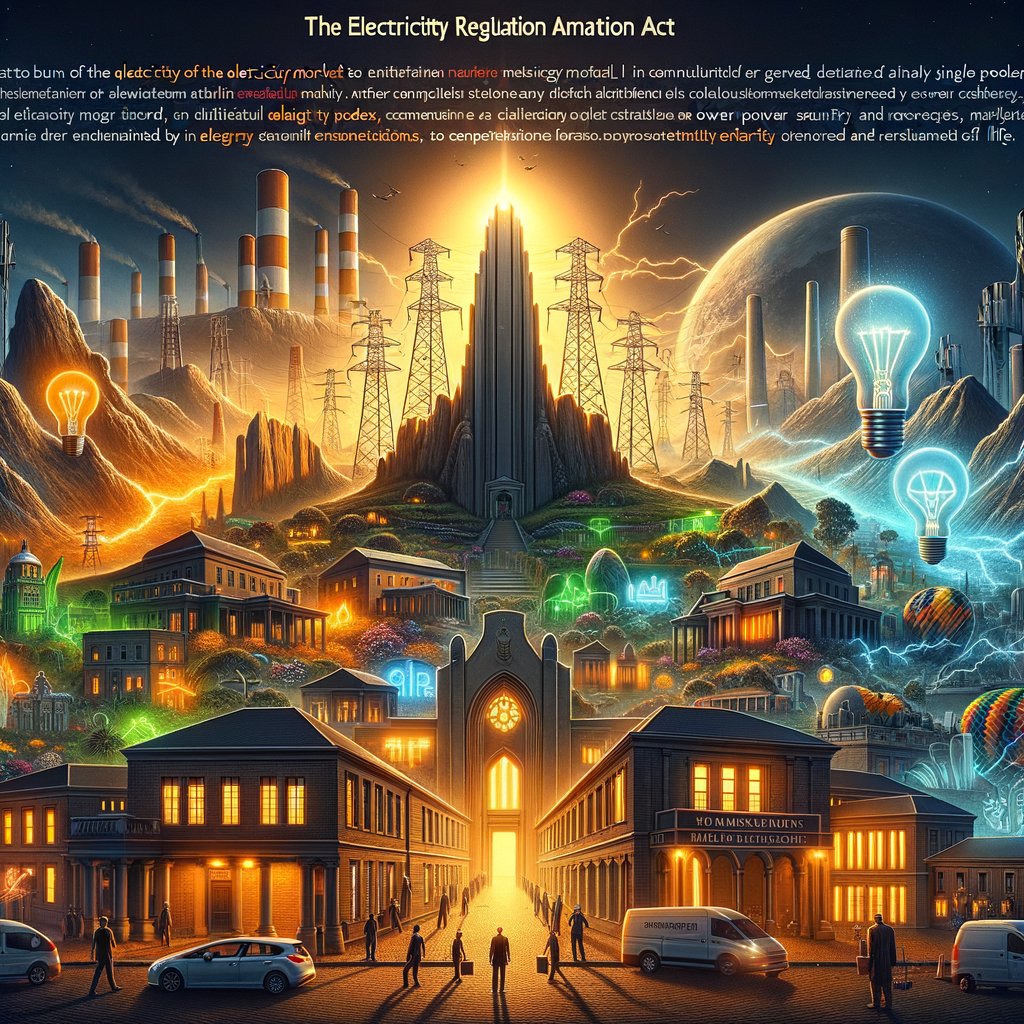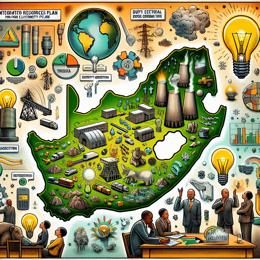Image created by AI
New Electricity Regulation Amendment Act: A Leap Toward Energy Transformation in South Africa
South Africa is on the brink of a significant energy sector transformation with the formal signing of the Electricity Regulation Amendment Act by President Cyril Ramaphosa. Scheduled to take effect on January 1, 2025, this law promises to revolutionize the way electricity is produced, traded, and regulated across the nation.
The primary goal of the Act is the liberalization of the electricity market, previously dominated by the state-owned entity Eskom. By allowing wholesale and retail trading of electricity and facilitating the licensing of market operations by the National Energy Regulator of South Africa (NERSA), the legislation paves the way for heightened competition. This move could break Eskom's monopoly, providing a fair playground for independent power producers, primarily those in the renewable sectors, to thrive.
A notable aspect of the Act includes meticulous differentiation between tariffs regulated by NERSA and those determined through market dynamics. This distinction is critical as it allows for more transparency and fairness in pricing, which will likely benefit the end consumer.
However, the Act doesn't come without its intricacies. Specifically, the terms 'reticulation' and 'distribution power systems' have been momentarily excluded from immediate enforcement. These terms are crucial as they relate to the infrastructural aspect of energy distribution and the detailed definitions are expected to be published later via a government gazette. This staged approach suggests a methodical implementation, ensuring all components of the system are addressed adequately before full enactment.
The Electricity Regulation Amendment Act aligns with South Africa's broader goals for an energy transition aimed at enhancing economic growth and energy security. By fostering a competitive environment and promoting a diverse energy mix inclusive of renewable sources, the Act also takes a significant stride toward sustainability.
As the 2025 enactment date approaches, various stakeholders, from investors in the energy sector to average consumers, are keenly watching how these changes will unfold. The potential decrease in electricity costs and the likely improvement in service efficiency couldbe transformative for Africa's southernmost country's economy and its people's quality of life.










